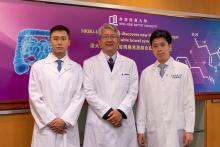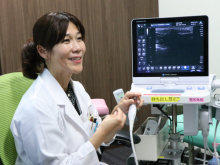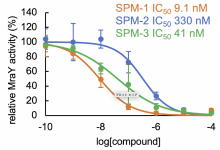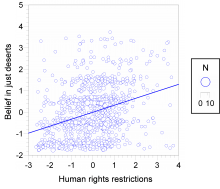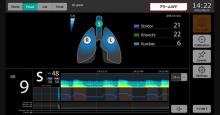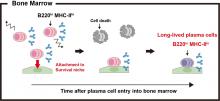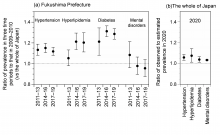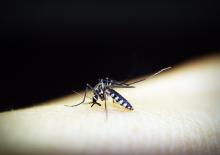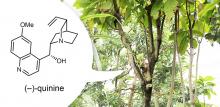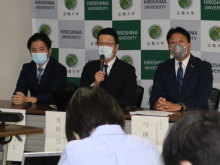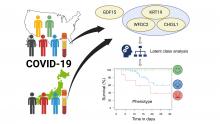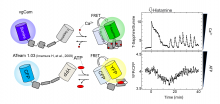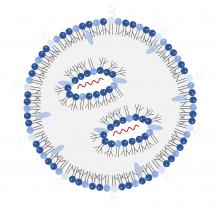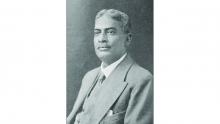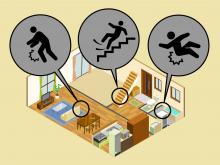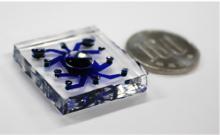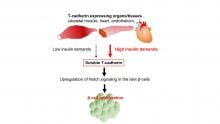Medicine & Healthcare
News
04 Jan 2023
A research study led by scientists from the School of Chinese Medicine (SCM) at Hong Kong Baptist University (HKBU) has shown for the first time that the human gut bacterium Ruminococcus gnavus is a major trigger factor of diarrhoea-predominant irritable bowel syndrome (IBS-D). Based on this discovery, a new therapeutic target for the disease’s treatment was identified. The study also found that low-protein food items such as fresh fruits, vegetables and bread may help reduce the gut motility in IBS-D.
04 Jan 2023
Researchers from Osaka University found that dietary supplementation with tricaprin results in coronary artery plaque regression and resolution of symptoms in patients with triglyceride deposit cardiomyovasculopathy, a treatment-resistant form of coronary artery disease. These findings represent a conceptually novel treatment for coronary atherosclerosis that paves the way toward establishing a multi-faceted approach to caring for patients with this condition.
23 Dec 2022
Scientists reveal genetic mechanism associated with high-calorie food-fueled obesity
23 Dec 2022
The ability to see what’s happening inside the body in real-time and at a high resolution is a capability that ultrasound grants orthopedists at a low cost to patients. Ultrasound-guided diagnosis, however, remains relatively new in the field. Dr. Yuko Nakashima is here to change that for Japan with the help of her fellow “e-girls.”
22 Dec 2022
A research team led by Osaka Metropolitan University has revealed a difference in neural activity in response to visual food stimuli, depending on whether those stimuli are presented consciously or unconsciously. Using a questionnaire to assess the study participants, the team found that this difference was associated with their scores on eating behaviors, including emotional eating and cognitive restraint of food intake. These results indicate that eating behavior cannot be understood without taking into account both unconscious and conscious neural processes.
20 Dec 2022
Researchers have designed and synthesized analogs of a new antibiotic that is effective against multidrug-resistant bacteria, opening a new front in the fight against these infections.
19 Dec 2022
Researchers from Osaka University found that the “belief in just deserts”, which is the idea that infected individual deserves to be infected, was associated with attitudes about government restrictions during public health emergencies in the context of the COVID-19 global pandemic. This information could lead to new strategies for combating discrimination, prejudice, and stigma against COVID-19 patients.
19 Dec 2022
A research team led by Hong Kong Baptist University (HKBU) has identified a molecular target for bone anabolic therapies using a selected aptamer that serves as an inhibitor of sclerostin, a protein that prevents bone growth. The discovery offers hope for the development of an effective next-generation treatment for osteoporosis and osteogenesis imperfecta that is free of cardiovascular risk compared to the marketed antibody drug.
19 Dec 2022
An Osaka Metropolitan University scientist measured the light transmittance of the eyelids when the eyes are closed, and found that perceived closed-eye brightness is significantly stronger than previously reported. The influence of color was also observed, with red light perceived as brighter and blue light perceived as darker. Additionally, there were significant differences between experimental participants; for some, their perception of brightness barely differed between open- and closed-eye conditions.
16 Dec 2022
Scientists developed a novel device that predicts whether an ICU patient taken off mechanical ventilation is likely to suffer from respiratory emergencies, helping critical care teams to provide immediate life-saving interventions.
15 Dec 2022
Researchers led by Osaka University report the development of INCIDER, a fluorescent sensor system that enables high-contrast microscopic imaging of temporal changes in cellular interactions mediated by the N-cadherin molecule. This sensor system, which emits much brighter fluorescence than the currently used system while detecting these interactions, is expected to have a wide range of applications in developmental biology, neuroscience, and other fields.
14 Dec 2022
Researchers led by Osaka University generated a time-stamping method to trace the development and survival of plasma cells in the bone marrow and spleen. Using a mouse model in which plasma cells were fluorescently labeled in an inducible manner, they found that plasma cells were continuously replenished by new cells, a small portion of which differentiated into long-lived plasma cells (LLPCs). These findings may aid in the development of new vaccines that efficiently induce LLPCs.
13 Dec 2022
A study by Osaka University has shown that the prevalence of non-communicable diseases, which included hypertension, hyperlipidemia, diabetes, and mental disorders, increased after the Fukushima disaster and the COVID-19 outbreak. These findings emphasize the importance of improving post-disaster health promotion strategies and recommendations.
09 Dec 2022
− The European Commission Approved QDENGA (TAK-003) for Use in Individuals Four Years of Age and Older [i]
− QDENGA Becomes the Only Dengue Vaccine Approved in the EU for Use in Individuals Regardless of Previous Dengue Exposure [i]
08 Dec 2022
Quinine and various drugs based on its chemical structure have been used to treat malaria for centuries. But parasites resistant to antimalarial drugs are becoming apparent. To pave the way for future medicine development, an efficient way to synthesize quinine was needed. And now a research team from Tohoku University has achieved just that.
06 Dec 2022
World's first research into relationship between rich-in-biodiversity garden greenery and health/well-being launched by University of Tokyo and Sekisui House Ltd.
01 Dec 2022
Therapeutically superior mesenchymal stem cells derived from the cranial bone offer hope in reversing paralysis and language impairment in moderate to severe cases of stroke.
25 Nov 2022
Researchers led by Osaka University identified plasma proteins associated with critical pathogenesis in COVID-19. Using a novel blood proteomics method, the researchers evaluated two discovery cohorts and one validation cohort of patients with COVID-19 and healthy volunteers. Cell adhesion proteins WFDC2, GDF15, CHI3L1, and KRT19 were shown to be associated with disease severity in patients with COVID-19, and may serve as potential targets for therapies to treat COVID-19 infection.
22 Nov 2022
The research team investigated the role of D-amino acids in severe viral infection. Mouse models of influenza A and COVID-19 infection and patients with severe COVID-19 demonstrated reduced D-amino acid levels in the blood. Supplementation with D-alanine mitigated body weight reduction in IAV model mice and improved survival in COVID-19 model mice. D-amino acids may represent potential biomarkers and therapeutic agents for the treatment of severe viral infection.
22 Nov 2022
New study finds that "HUG Your Baby" — a program developed to help parents understand their baby’s behavior — could help reduce postpartum depression in mothers.
16 Nov 2022
Researchers from SANKEN (The Institute of Scientific and Industrial Research) at Osaka University have genetically engineered a protein to emit the shortest-wavelength fluorescence light reported to date. They did this by optimizing the interactions between the fluorescence center (chromophore) and its surroundings, in a manner that differs from previous reports. The resulting fluorescence emission was bright and stable over a useful range of pH values. This work will aid basic and applied research, such as understanding the behavior of healthy and diseased cells.
10 Nov 2022
A novel branched lipid that has a high stability in storage and a high efficiency in the delivery of mRNA to cells has been developed.
10 Nov 2022
Giants in History: Indian scientist and physician Upendranath Brahmachari (19 December 1873–6 February 1946) is best known for creating a drug called Urea Stibamine, used to safely and reliably treat visceral leishmaniasis (or Kala-azar), a severe infection caused by the Leishmania parasite.
10 Nov 2022
Injury from falls lowers healthy life expectancy and quality of life, especially for older people. In Japan, patients discharged from acute care hospitals have higher incidences of falls. These falls occur more often indoors in places used frequently in daily life. A group of Osaka Metropolitan University researchers conducted a 6-month follow-up survey, after discharge from an acute care hospital, on falls and near-falls, of orthopedic disease patients with a fall history aged 65 or older. The results suggest that preventive intervention instructing patients using their home floor plans may help prevent falls during the early post-discharge period.
09 Nov 2022
Researchers from Osaka University and Dusseldorf University have found a new theranostic compound that effectively shrinks prostate tumor in mice. Theranostics is a cancer treatment that involves finding cancer cells anywhere in the body and delivering targeted radiation to kill those cells, by drugs that contain radioactive isotopes. It means that this compound could be a promising option for treating hormone-resistant metastases in patients with recurrent cancers. This is stated to be tested in an upcoming clinical trial.
08 Nov 2022
The costliness of drug development and the limitations of studying physiological processes in the lab are two separate scientific issues that may share the same solution. Microphysical systems (MPSs) are in vitro platforms made up of cells in a microenvironment that closely mimics that found in the body, allowing scientists to recreate the conditions of tissues found within the body for both further elucidation of biological conditions and systems and for applications such as testing drugs in a more precise model than animal testing allows. However, the advancements that MPSs could provide have been limited up to this point by an inability to accurately record what is happening at a cellular level. Now, a team of scientists has developed an electrochemical sensing platform that could solve this issue. The results were published in Biosensors and Bioelectronics.
07 Nov 2022
Researchers led by Osaka University show that a molecule called T-cadherin can be secreted in a soluble form. Soluble T-cadherin interacts with pancreatic insulin-producing β cells via the Notch signaling pathway to promote their proliferation and increase the production of insulin. Recombinant T-cadherin stimulated Notch signaling in isolated mouse pancreatic islets, which contain β cells, indicating that T-cadherin may have therapeutic potential for diabetes.
04 Nov 2022
Research in Singapore confirms a link between tiny particulates in air pollution and sudden cardiac arrests in the general population.
01 Nov 2022
Triple-negative breast cancer (TNBC) tumors gain immunosuppression and chemoresistance through interactions between interleukin 34 and myeloid-derived suppressor cells, researchers find.
31 Oct 2022
While both protect from severe disease, inactivated SARS-CoV-2 and spike mRNA vaccines trigger different T-cell responses.
Events
Sorry, nothing coming up for this discipline
- « first
- ‹ previous
- 1
- 2
- 3
Researchers
Sorry, nothing coming up for this discipline
- « first
- ‹ previous
- 1
- 2
- 3
Giants in history
Sorry, nothing coming up for this discipline


